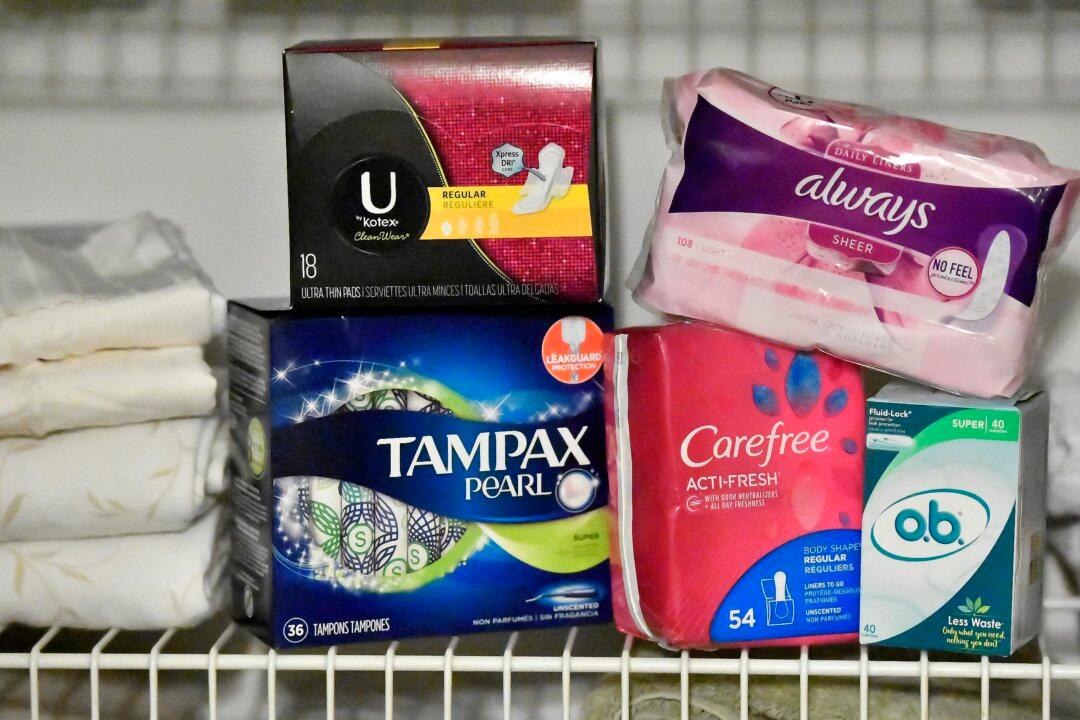All federally regulated workplaces in Canada must have menstrual products, such as pads and tampons, readily available beginning Dec. 15 to “enable menstruating persons to take part fully in the workforce and society at large.”
The appearance of these products already in men’s washrooms at Canadian Armed Forces (CAF) bases has been noted by the group Veterans 4 Freedom.





